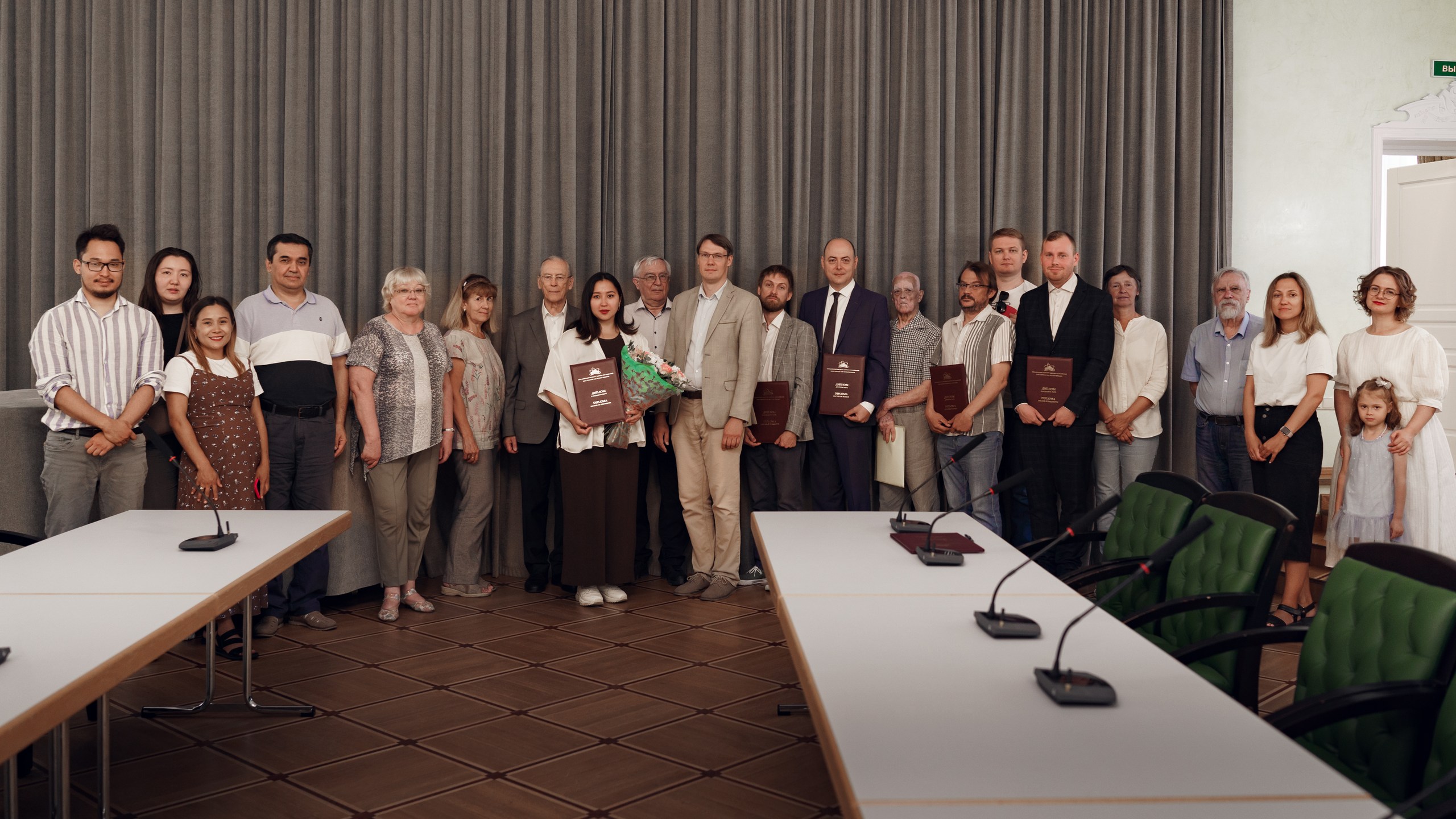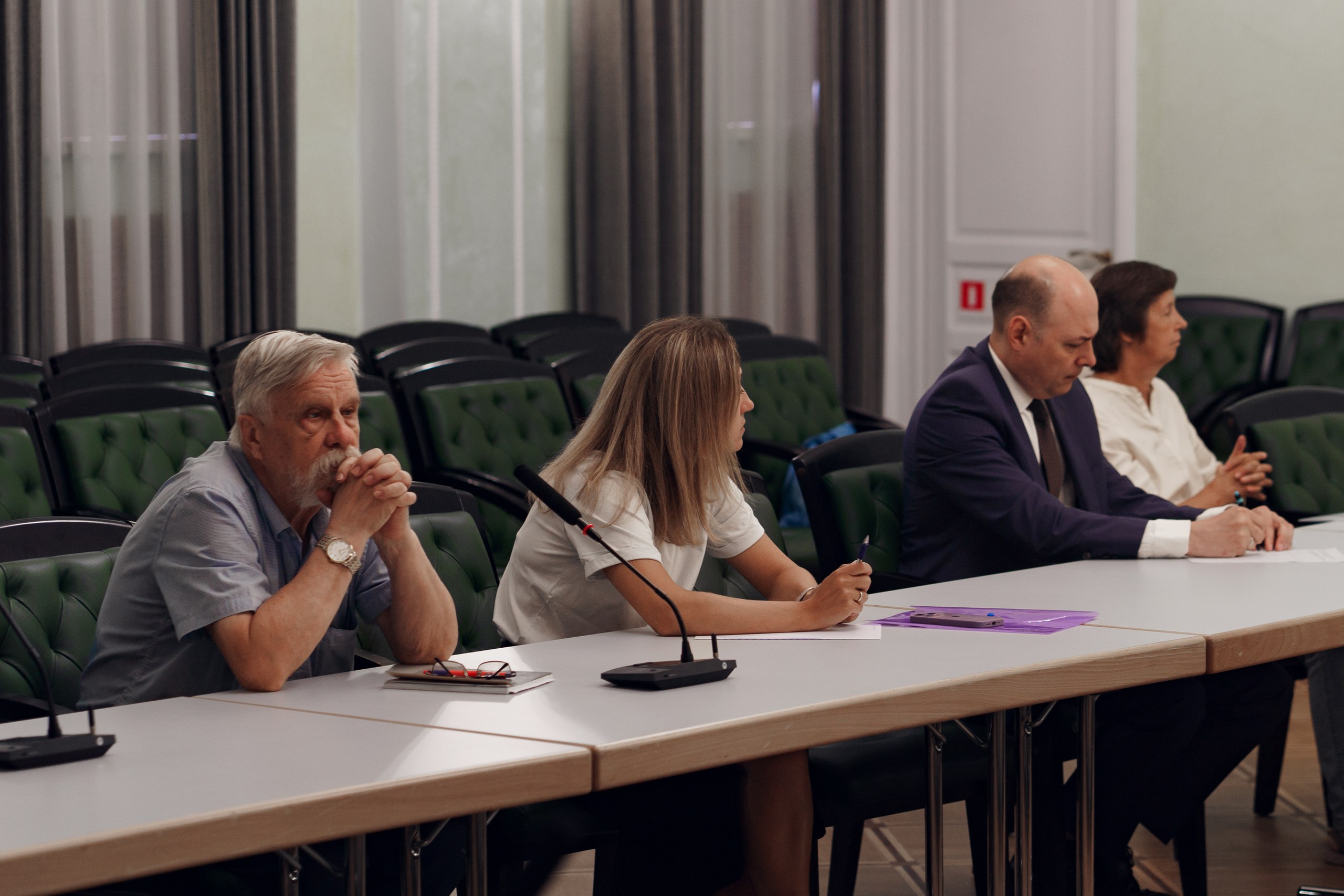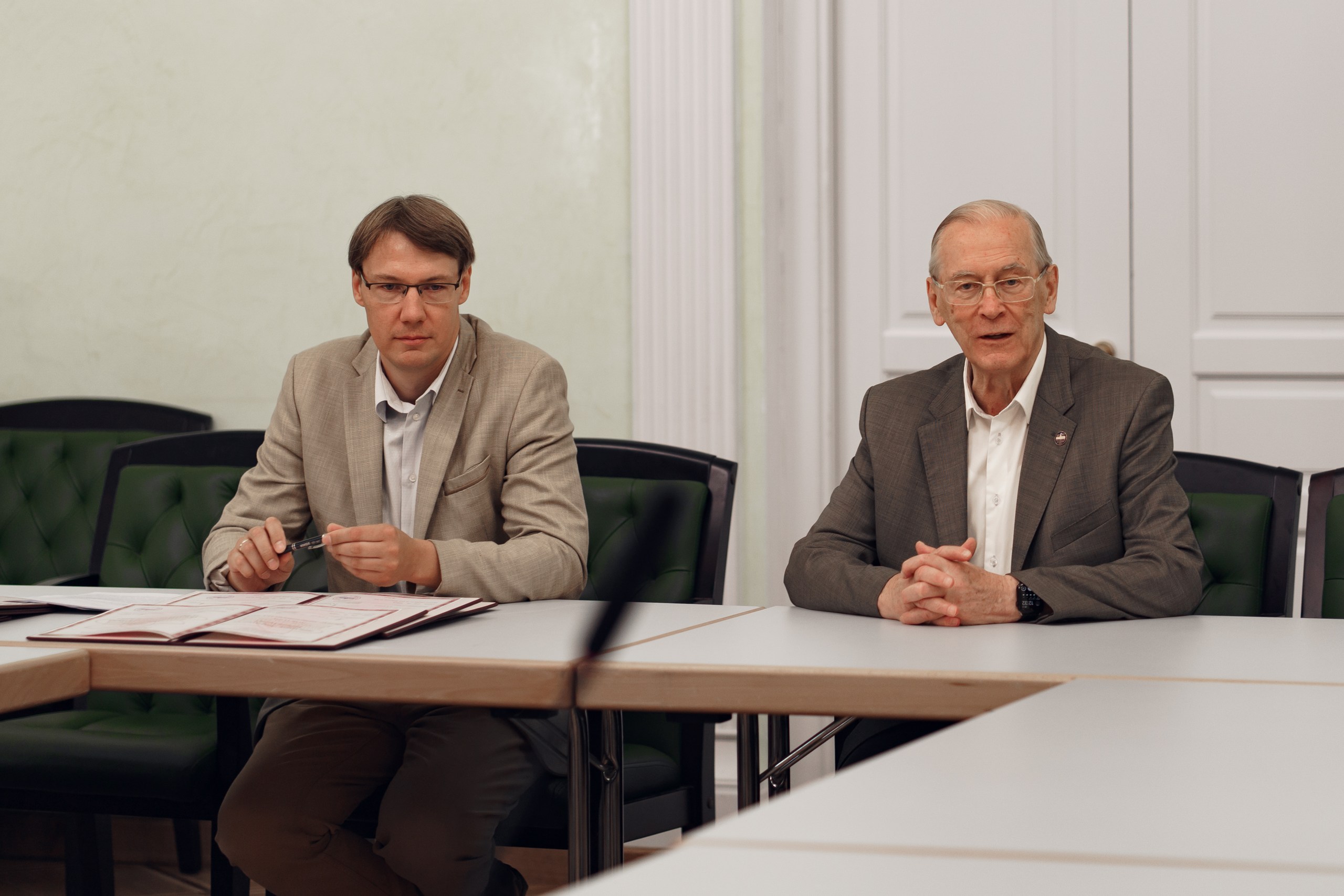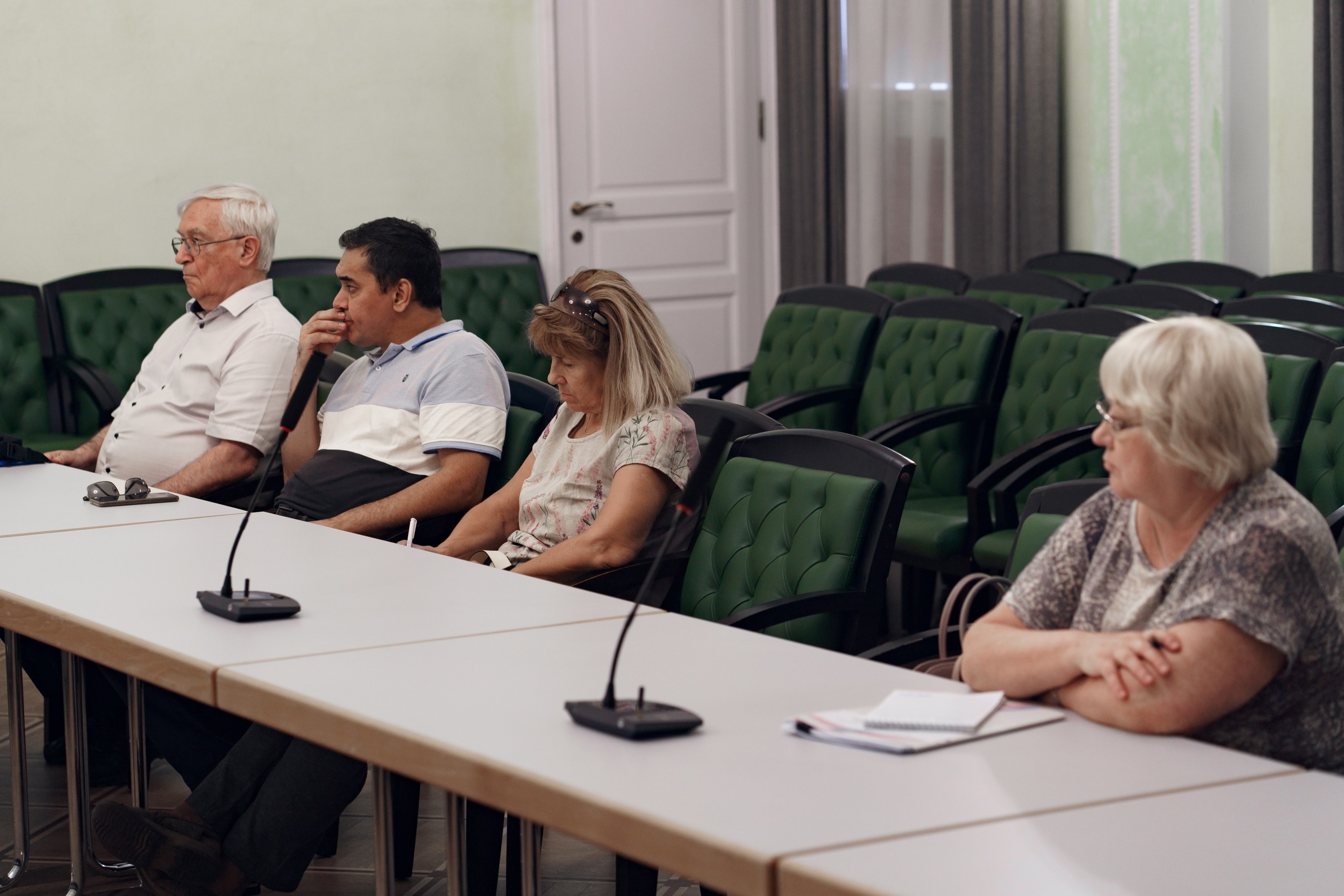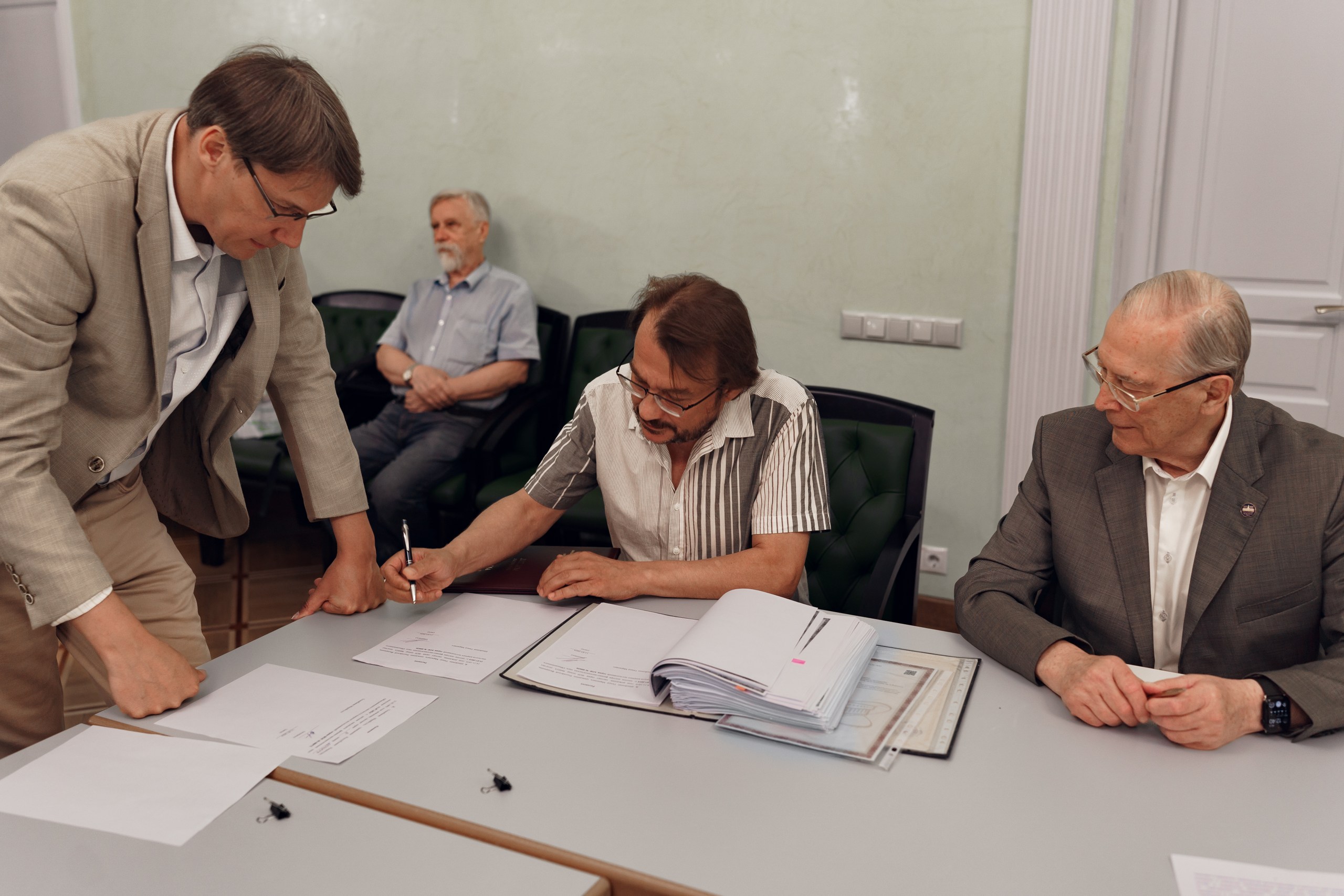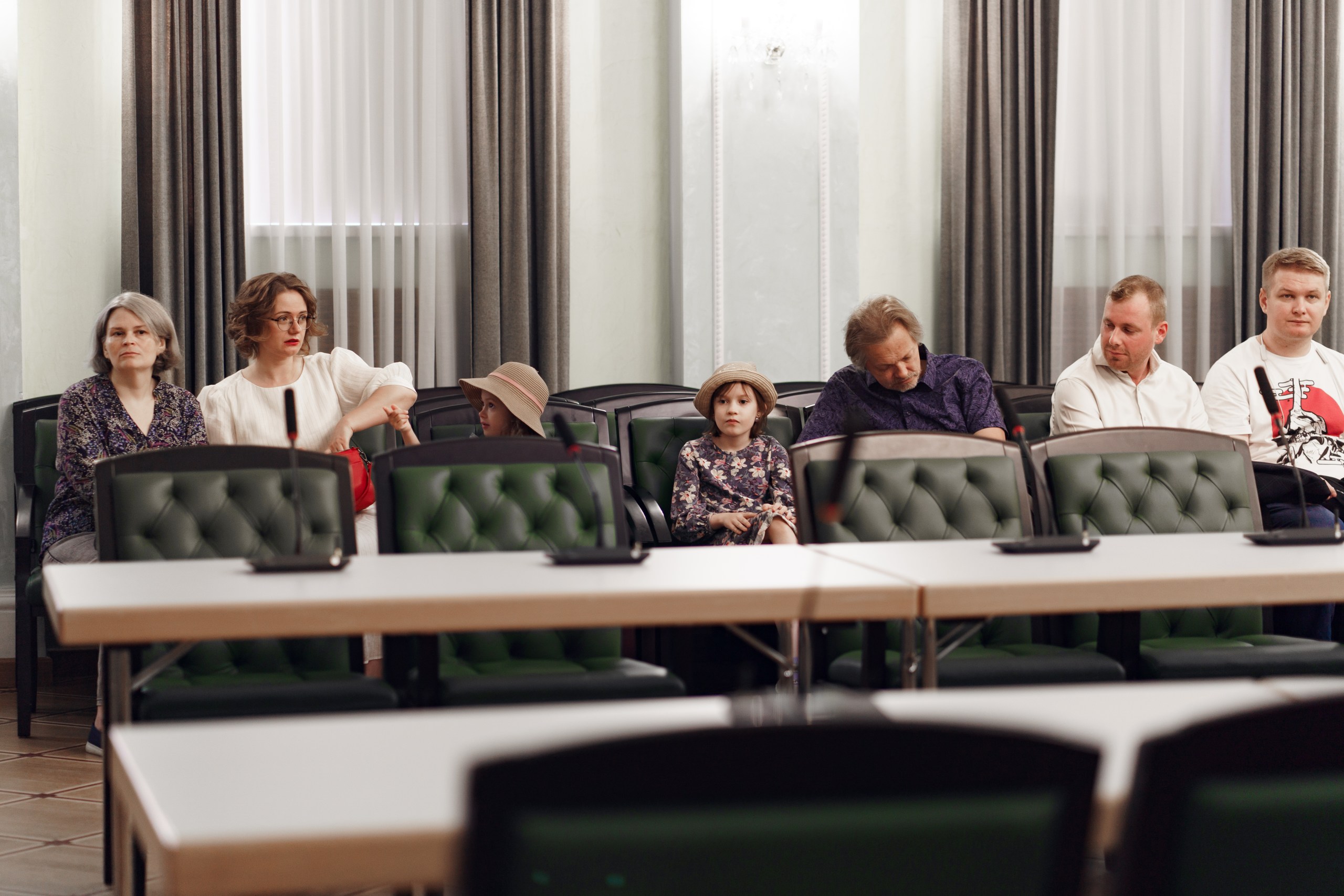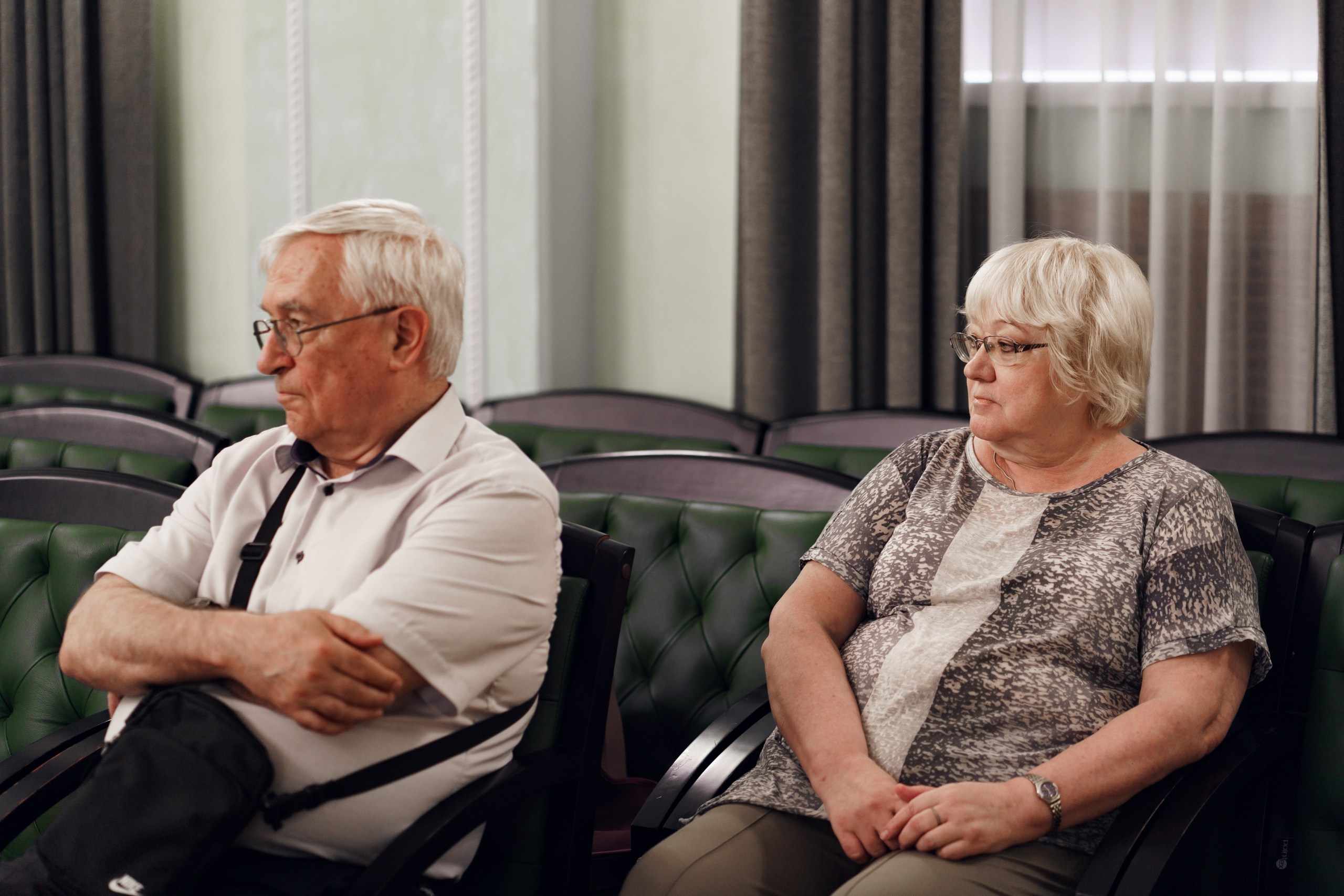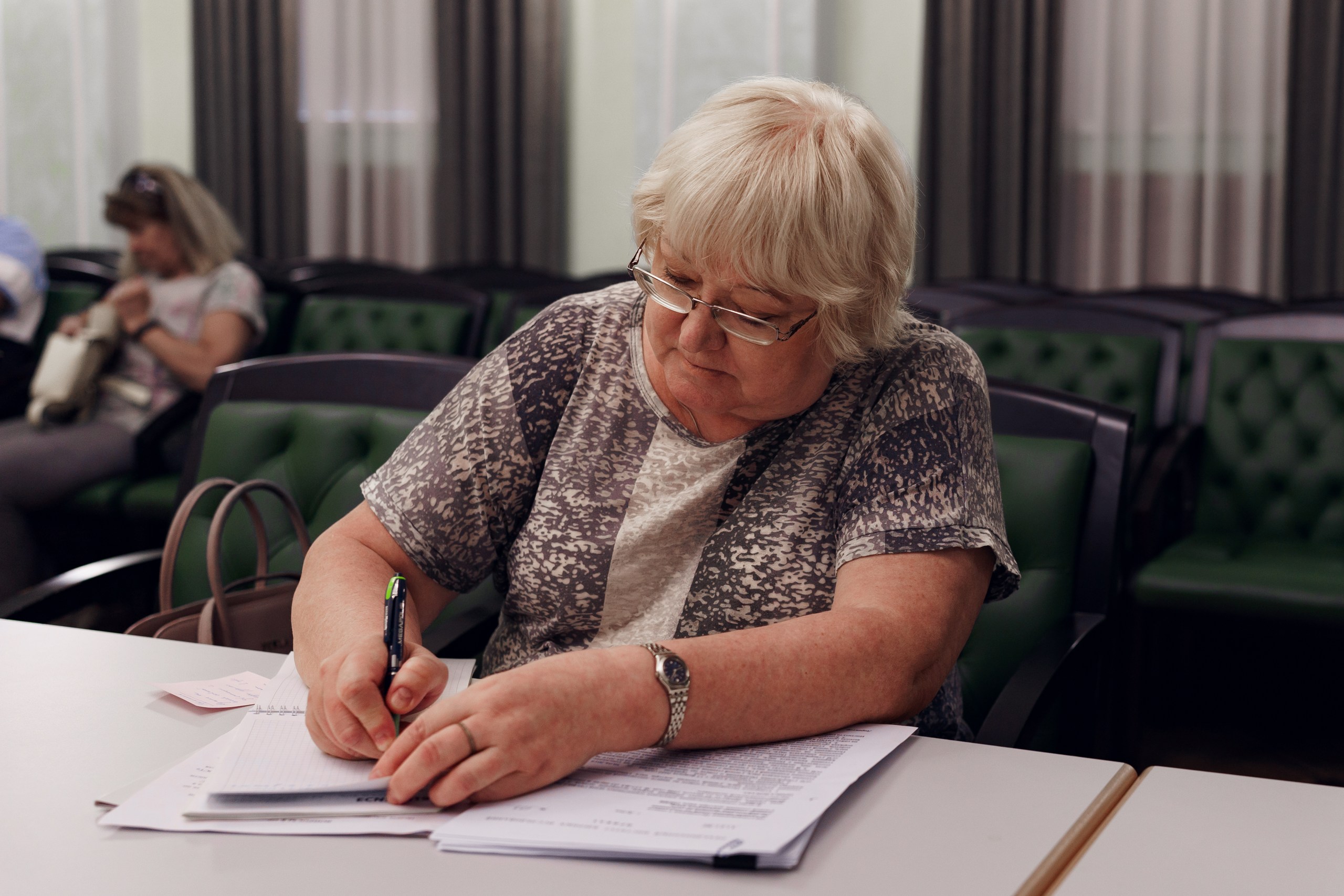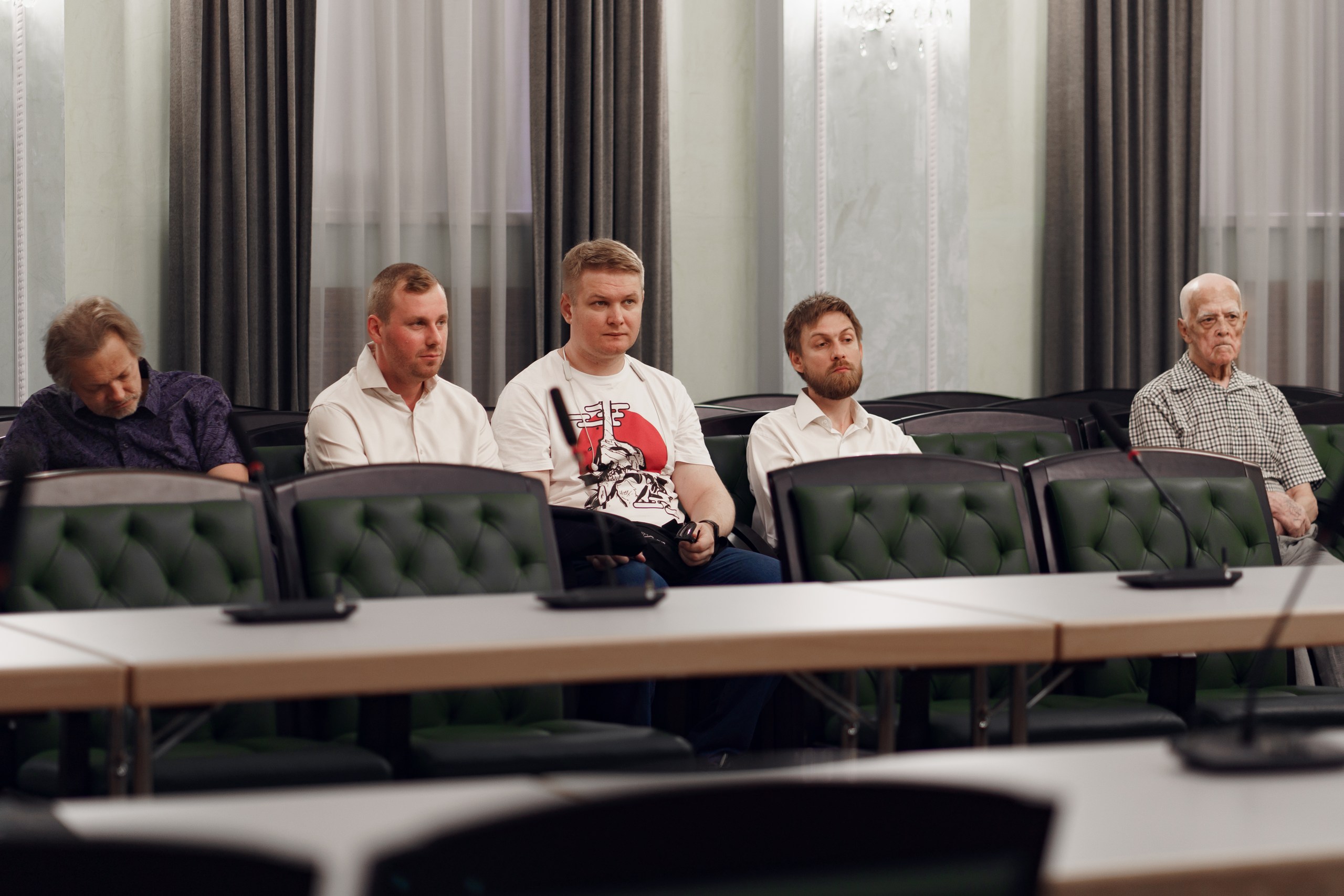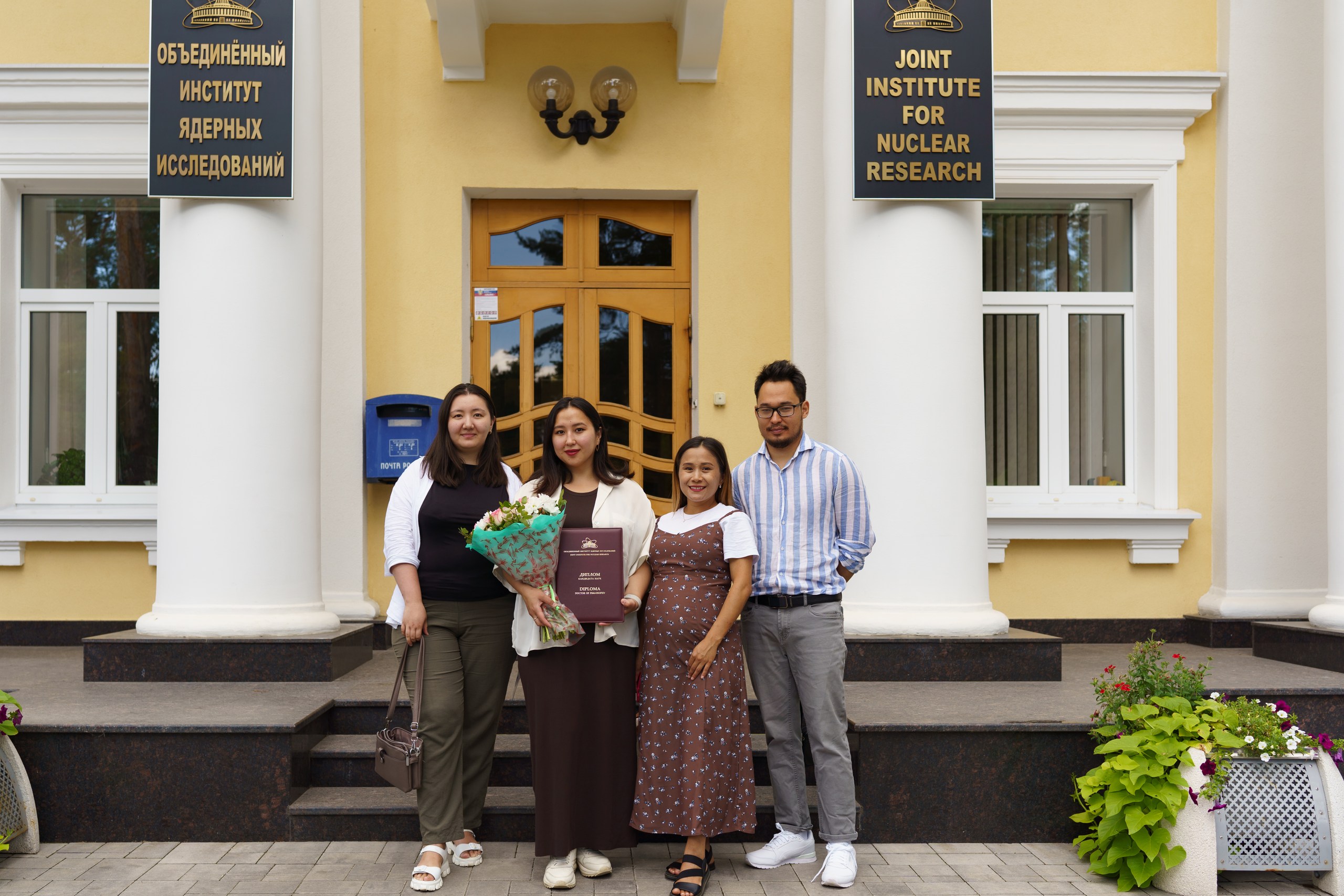Round table with scientific secretaries of dissertation councils
News, 17 July 2024
On 11 July, the Big Hall of the Scientists’ Club hosted a round table with scientific secretaries of the JINR Dissertation Councils dedicated to organizational issues of the independent awarding of scientific degrees. As part of the event’s programme, seven researchers received diplomas on conferring academic degrees.
During their meeting, the leadership of the Qualification Committee and the scientific secretaries of the dissertation councils exchanged views on a number of procedural issues of awarding academic degrees based on the Institute’s experience of exercising the right to independently confer academic degrees.
Chair of the JINR Qualification Committee, Scientific Leader of the Institute Victor Matveev opened the meeting. In the introductory speech, he emphasised the importance of the status of independent academic degree awarding and the associated high responsibility at all stages of the dissertation councils’ work.
Qualification Committee Scientific Secretary Oleg Belov informed the audience about a number of letters from the Ministry of Science and Higher Education of Russia. The letters concern the monitoring of the dissertation councils’ work, the possibility for representatives of the Higher Certification Commission to attend dissertation defence meetings, and the Ministry’s recommendations on improving the system of independent academic degree awarding.
The participants discussed measures taken to regularly update information on the publication activity of members of dissertation councils as part of monitoring, the procedure of applicants submitting higher education documents, and issues of providing information about scientific supervisors and official opponents of dissertations. Another topic was procedural issues related to document certification when compiling a set of documents that the applicant is required to submit for the defence.
The Qualification Committee’s leadership brought to the scientific secretaries’ attention the importance for applicants to adhere to the state standard when preparing the dissertation and abstract, including when using the TeX typesetting program. In accordance with the JINR Regulation on Conferring Academic Degrees, dissertations and abstracts that do not comply with the state requirements must be returned to the applicant for revision before accepting the dissertation for preliminary consideration.
The scientific secretaries of the dissertation councils touched upon the issues of applicants filling in education and employent record forms. Clarification was made regarding the possibility of requiring applicants to provide more detailed information specified in the form, or to organize this information as a resume.
The Qualification Committee underlined that according to the Federal Law 77-FZ, dated 29 Dec. 1994, “On mandatory copies of documents”, a soft copy of the dissertation abstract, certified with an electronic signature, must be sent to the Russian State Library through the Mandatory Electronic Copy System (“ОЭК” in Russian). At the same time, providing nine hard copies of the dissertation abstract remains obligatory.
Scientific secretaries of the dissertation councils put forward a number of initiatives to improve the system of electronic submission of dissertations, the Information System for Scientific Certification (“ИСНА” in Russian). In particular, proposals were heard to make providing information about supervisors of Candidates’ theses mandatory, to structure document templates by allocating blocks for the applicant and the work of dissertation councils, and to arrange templates in Russian and English.
A request was made to include the secretaries of dissertation councils in the mailing lists of the Secretariat when sending orders for approval of decisions on awarding degrees.
The Qualification Committee answered the questions raised during the meeting about maintaining applicants’ set of documents, including those regarding the procedure for handling the documents when withdrawing a dissertation from defence at the applicant’s own request.
In addition, the Committee heard a proposal to allow two candidates to be included in one-time councils consisting out of five opponents for the defenсe of candidates’ theses and to consider additional solutions concerning the preliminary consideration of the dissertation in the councils created for each defence.
One of the main points on the round table’s agenda was the ceremony of awarding diplomas on conferring academic degrees. Seven scientists received diplomas of the Joint Institute for Nuclear Research. As per tradition, guests invited by the recipients attended the ceremony.
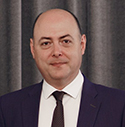 Yury M. Bystritskiy, a citizen of the Russian Federation, received the academic degree of Doctor of Physics and Mathematics based on the results of the defence of the dissertation “First and second order radiation effects in the Standard Model for modern experimental programmes” in the specialty 1.3.3 “Theoretical Physics”. The defence took place at BLTP under the Dissertation Council on Theoretical Physics.
Yury M. Bystritskiy, a citizen of the Russian Federation, received the academic degree of Doctor of Physics and Mathematics based on the results of the defence of the dissertation “First and second order radiation effects in the Standard Model for modern experimental programmes” in the specialty 1.3.3 “Theoretical Physics”. The defence took place at BLTP under the Dissertation Council on Theoretical Physics.
 Enkhbold Sansarbayar, a citizen of Mongolia, received the academic degree of Candidate of Physics and Mathematics based on the results of the defence of the dissertation “Experimental studies of (n, α) reactions with fast neutrons on isotopes 40Ca, 66Zn, 91Zr, and 144Sm using an ionisation chamber” in the speciality 1.3.15 “Nuclear Physics, Elementary Particle Physics, and High Energy Physics”. The defence was held at FLNR under the Dissertation Council on Heavy Ion Physics (the diploma was awarded on 20 June).
Enkhbold Sansarbayar, a citizen of Mongolia, received the academic degree of Candidate of Physics and Mathematics based on the results of the defence of the dissertation “Experimental studies of (n, α) reactions with fast neutrons on isotopes 40Ca, 66Zn, 91Zr, and 144Sm using an ionisation chamber” in the speciality 1.3.15 “Nuclear Physics, Elementary Particle Physics, and High Energy Physics”. The defence was held at FLNR under the Dissertation Council on Heavy Ion Physics (the diploma was awarded on 20 June).
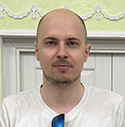 Dmitry I. Solovyov, a citizen of the Russian Federation, received the degree of Candidate of Physics and Mathematics based on the results of the defence of the dissertation “Calculated and experimental characteristics of the new DGFRS-2 Gas-Filled Separator and modelling of ion optics of GASSOL Gas-Filled Superconducting Solenoid” in the speciality 1.3.2 “Instrumentation and Methods of Experimental Physics”. The defence took place at FLNR under the Dissertation Council on Heavy Ion Physics.
Dmitry I. Solovyov, a citizen of the Russian Federation, received the degree of Candidate of Physics and Mathematics based on the results of the defence of the dissertation “Calculated and experimental characteristics of the new DGFRS-2 Gas-Filled Separator and modelling of ion optics of GASSOL Gas-Filled Superconducting Solenoid” in the speciality 1.3.2 “Instrumentation and Methods of Experimental Physics”. The defence took place at FLNR under the Dissertation Council on Heavy Ion Physics.
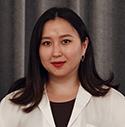 Mereigul S. Tezekbayeva, a citizen of the Republic of Kazakhstan, received the academic degree of Candidate of Physics and Mathematics based on the results of the defence of the dissertation “Study of radioactive decay properties of nobelium isotopes by α-, β-, γ- spectroscopy method” in the speciality 1.3.15 “Nuclear Physics, Elementary Particle Physics, and High Energy Physics”. The defence was held at FLNR under the Dissertation Council on Heavy Ion Physics.
Mereigul S. Tezekbayeva, a citizen of the Republic of Kazakhstan, received the academic degree of Candidate of Physics and Mathematics based on the results of the defence of the dissertation “Study of radioactive decay properties of nobelium isotopes by α-, β-, γ- spectroscopy method” in the speciality 1.3.15 “Nuclear Physics, Elementary Particle Physics, and High Energy Physics”. The defence was held at FLNR under the Dissertation Council on Heavy Ion Physics.
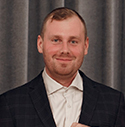 Denis M. Tolkachev, a citizen of the Republic of Belarus, received the academic degree of Candidate of Physics and Mathematics based on the results of the defence of the dissertation “Generalised renormalisation group equations in non-renormalisable quantum field theory” in the speciality 1.3.3. “Theoretical Physics”. The defence took place at BLTP under the Dissertation Council on Theoretical Physics.
Denis M. Tolkachev, a citizen of the Republic of Belarus, received the academic degree of Candidate of Physics and Mathematics based on the results of the defence of the dissertation “Generalised renormalisation group equations in non-renormalisable quantum field theory” in the speciality 1.3.3. “Theoretical Physics”. The defence took place at BLTP under the Dissertation Council on Theoretical Physics.
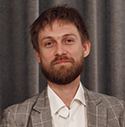 Sergey P. Khlebtsov, a citizen of the Russian Federation, received the academic degree of Candidate of Physics and Mathematics based on the results of the defence of the dissertation “Gluon anomaly in the dispersive approach and transition form factors of pseudoscalar mesons” in the speciality 1.3.3. “Theoretical Physics”. The defence was held at BLTP under the Dissertation Council on Theoretical Physics.
Sergey P. Khlebtsov, a citizen of the Russian Federation, received the academic degree of Candidate of Physics and Mathematics based on the results of the defence of the dissertation “Gluon anomaly in the dispersive approach and transition form factors of pseudoscalar mesons” in the speciality 1.3.3. “Theoretical Physics”. The defence was held at BLTP under the Dissertation Council on Theoretical Physics.
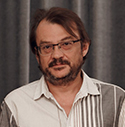 Timur M. Shneidman, a citizen of the Russian Federation, received the academic degree of Doctor of Physics and Mathematics based on the results of the defence of the dissertation “Manifestation of cluster degrees of freedom in the structure of heavy nuclei” in the speciality 1.3.15 “Nuclear Physics, Elementary Particle Physics, and High Energy Physics”. The defence took place at BLTP under the Dissertation Council on Theoretical Physics.
Timur M. Shneidman, a citizen of the Russian Federation, received the academic degree of Doctor of Physics and Mathematics based on the results of the defence of the dissertation “Manifestation of cluster degrees of freedom in the structure of heavy nuclei” in the speciality 1.3.15 “Nuclear Physics, Elementary Particle Physics, and High Energy Physics”. The defence took place at BLTP under the Dissertation Council on Theoretical Physics.
